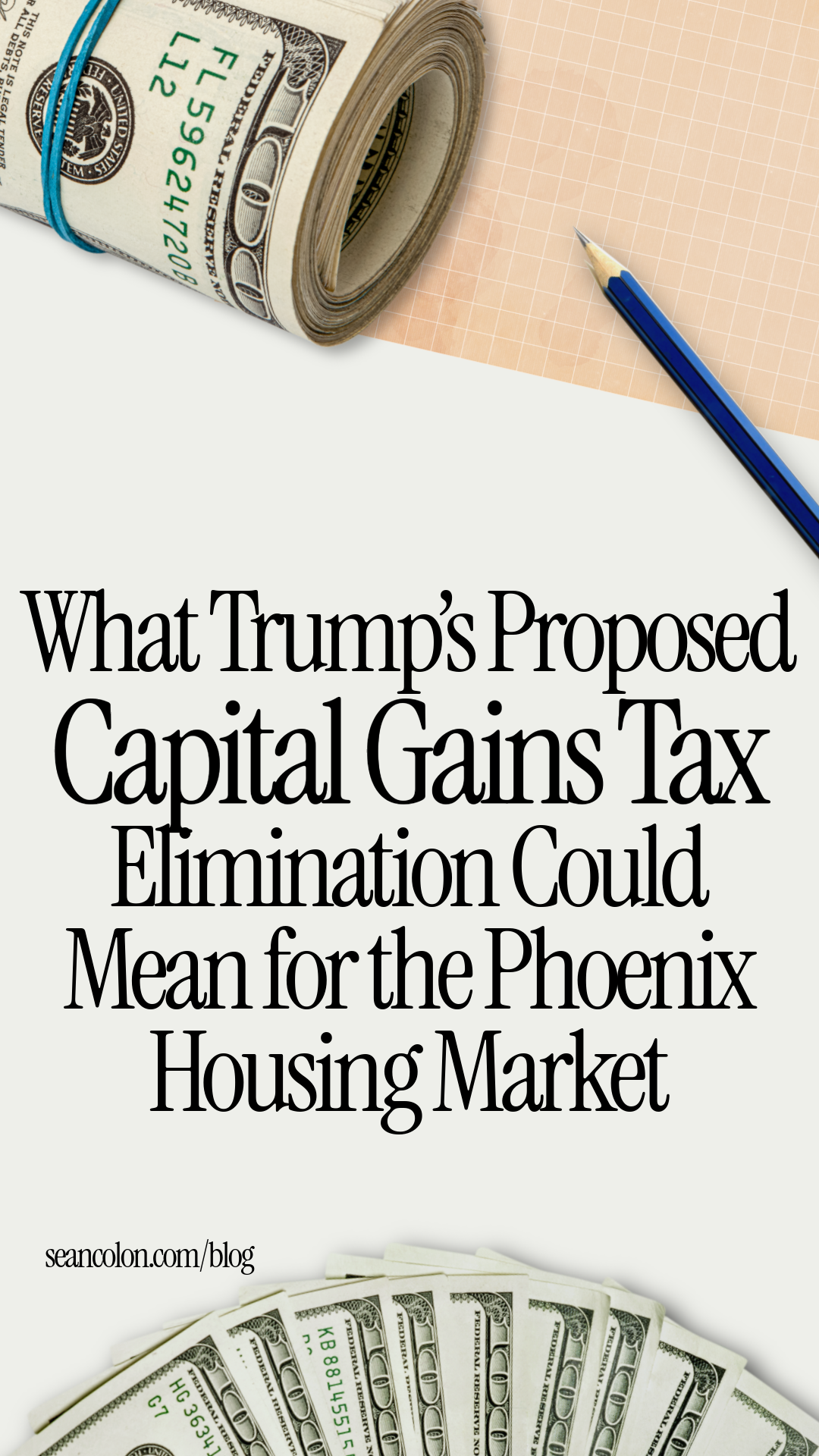Arizona REALTORS® Take Note: What Trump’s Proposed Capital‑Gains Tax Elimination Could Mean for the Phoenix Housing Market
Why Home-Sellers Could Begin Flooding the Market
President Trump has recently floated the idea of eliminating capital‑gains tax on home sales, aligning with legislation introduced by Rep. Marjorie Taylor Greene. This could represent a seismic shift in federal tax law—especially in states like Arizona where homeowners currently pay both federal and state capital‑gains tax at 2.5% on any gain beyond the exclusion limit Edelman Financial Engines+10Barron's+10New York Post+10. Today, a married couple selling their primary residence can still exclude up to $500,000 of profit from federal tax, but rapidly rising prices mean many owners exceed that cap.
🏡 Why This Matters in Arizona: Older Homeowners & Pent-Up Inventory
Across California—where homes have surged in value—homeowners are sitting on extraordinary gains. In San Jose, for example, the median home price rose by about $925,000 over 18 years, meaning a married seller faces federal taxes on roughly $425,000 of profit—about $64,000 at 15% tax The Wall Street Journal+1bramnicklawaz.com+1.
Though Arizona hasn't seen quite that scale, many longtime Phoenix-area homeowners purchased in the early 2000s or before and are sitting on similar equity—well above the federal exclusion turning into a tax liability.
Realtor.com estimates around 15% of homeowners nationwide hold sufficient equity that they face taxes if they sell—and these tend to be older, wealthier homeowners with average net worth above $5.7 million Yahoo FinanceCBS News. Eliminating capital‑gains taxes could unlock that housing supply, increasing listings in higher‑priced segments.
📊 What's At Stake for Arizona REALTORS®
1. Inventory could grow: Removing or reforming capital-gains tax may motivate sellers who have delayed listing to reconsider, boosting inventory in Phoenix, Scottsdale, Gilbert, and other high‑appreciation areas.
2. Pricing shifts: Current tax law discourages moves, reinforcing "stay‑put" behavior. If taxes vanish or yield to inflation indexing, older sellers might list, potentially refreshing neighborhoods with updated offerings.
3. Buyer leverage remains limited: Even if supply rises, affordability pressures persist. Arizona homeowners often still need to spend over 47‑48% of income on housing, especially in Phoenix and Tucson, complicating sales even in softened markets.
✳️ Potential Drawbacks & REALTOR® Guidance Tips
Major benefits skew to wealthy sellers. The policy largely aids homeowners whose home profits exceed $250K–$500K thresholds—many of whom are long-distant sellers or downsizers LawForSeniors.org+13CBS News+13Barron's+13.
Tax exclusion removal could reduce incentives for improvements. Some economists warn that lifting capital‑gains tax may discourage investments in property upgrades (cost basis strategies) CBS News.
Depreciation recapture matters for rental conversions. Owners shifting from primary residence to rental must still face recapture rules under IRS Code §§ 1245/1250
Final Thought: Not a Guarantee—but Worth Watching Closely
While this proposal to eliminate capital‑gains tax on home sales is not yet law, it signals a shifting political environment—and a potential boost to inventory in high-appreciation markets. For Arizona REALTORS®, staying educated, communicating tax implications, and acting fast if and when legislation changes could unlock new opportunities in 2025 and beyond.
The housing crunch in Phoenix, Scottsdale, and other Valley hotspots may find partial relief—not just from supply and demand swings, but from shifting tax policy that encourages sellers to finally list.


